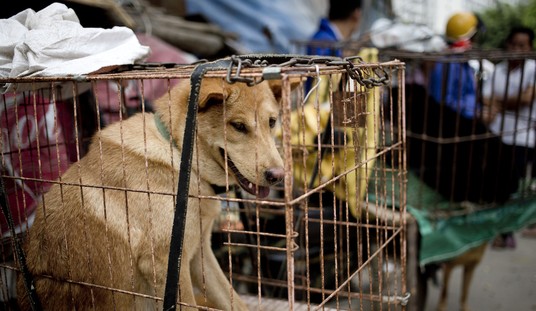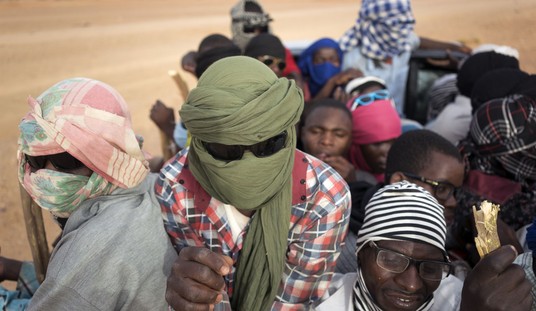
A big part of Donald Trump’s appeal is, bluntly, that he’s a bully: a guy who uses his leverage and his crude insults and sometimes the machinery of big government to push other, weaker people around. “Yes, he’s a bully,” his fans say, “but let him be a bully for America. We need a tough guy who knows how to throw our weight around.” The problem with this idea should be obvious to anyone who has ever dealt with a bully: they are often the opposite of a tough guy, and can’t take what they dish out. We’ve seen that pattern repeatedly with Trump on the trail, how easily rattled and offended he is by getting insulted (as of last night, the man was still going on about his hands) and how quick to run away from a fight with the likes of Megyn Kelly and try to get someone else to have her lay off him.
But it’s also a pattern in his business career. We’re not close to fully vetting Trump’s relationships with mobsters. PoliFact collects a lot of the media reports on this, and while PoliFact’s conclusions are often hackery, the sourcing here goes well beyond what’s needed to make the point:
La Cosa Nostra had a virtual monopoly on concrete in New York at the time Trump was adding his name to its skyline in the 1980s. And the mafia’s control over building supplies and labor unions meant that the crime families had a hand in most construction projects in Manhattan.
Trump and other major developers “had to adapt to that situation” or build elsewhere, said James B. Jacobs, a mafia expert who was part of a state task force on organized crime.
“That was the fact of life, that was the way it was,” he told PolitiFact. “The contractors and developers weren’t pure victims. You could bribe the mob-controlled union leaders and get relief from the more arduous conflicts. But we had no information that Trump was any different.”
That being said, Trump’s business dealings with the mob or mob-related characters are widely documented. Let’s run through them.
Trump was first tied to the mafia in the 1980s, when a $7.8 million subcontract for Trump Plaza was awarded to S&A Concrete, according to Fortune. The company, as Cruz correctly says, was partially owned by Anthony “Fat Tony” Salerno, the boss of the Genovese crime family.
Trump himself acknowledged as much in a December 2015 interview with the Wall Street Journal, admitting that S&A Concrete was “supposedly associated with the mob.”
“Virtually every building that was built was built with these companies,” he said, adding, “These guys were excellent contractors. They were phenomenal. They could do three floors a week in concrete. Nobody else in the world could do three floors a week. I mean they were unbelievable. Trump Tower, other buildings.”
It’s safe to say we’ve never had a modern presidential nominee who had to answer for stuff like this. The latest report this morning comes from veteran investigative reporter Michael Isikoff (of Lewinsky-scandal fame), who details how Trump personally cozied up to abusive mobster Robert LiButti and, among other things, caved to LiButti’s demands to keep black people and women away from his gambling tables:
New Jersey state regulators had launched an investigation into allegations by nine employees of one of Trump’s Atlantic City casinos, the Trump Plaza, that the hotel had repeatedly removed African-Americans and women from craps tables after LiButti, one of the highest-rolling gamblers in the city’s history, loudly complained about their presence when he was playing.
The probe resulted in a $200,000 fine against the Trump Plaza by the New Jersey Casino Control Commission for violating state anti-discrimination laws. Investigators found that LiButti had, on multiple occasions, berated blacks and women using what one state official described as the “vilest” language — including racist slurs and references to women in obscene terms — and that the Trump Plaza, in order not to lose his substantial business, sought to accommodate him by keeping the employees away from his betting tables, according to commission documents recently obtained by Yahoo News under the New Jersey Open Public Records Act.
LiButti was ultimately done in by that mobster’s downfall, audiotaped conversations, including this classic September 1990 exchange with an informant:
LiButti also offered personal advice, telling Tracy that Trump needed to “get rid of the broad” — a reference to his then publicized affair with Marla Maples. And he lamented the toll that both the business and personal issues were taking on Trump at the time.
“He’s lost that aggressiveness. … Walks around like a f***ing banana. I can’t believe it’s Donald Trump. I don’t understand it,” LiButti says.
“Yeah, I know you were shocked when you saw him,” Tracy replies.
“Yeah,” says LiButti. “I can’t believe it. My hero. Broke my f***ing heart. My f***ing idol. I wanted to grow up like him.”
LiButti recounts how on one occasion, when he had blown $350,000 at the Plaza craps tables, Trump personally handed him a check — apparently as a so-called comp to keep him coming back. “As I’m checking out … they call Donald. He goes in his pocket and takes out the f***ing check and goes, ‘I want to present this to you myself.’” (When questioned about that claim at the time by reporter David Cay Johnston, then with the Philadelphia Inquirer, Trump denied it, saying, “I never gave him a check at all.”)
I’m not sure which is worse, that a mobster considered Trump his “idol” or that Trump disappointed his standards for toughness. When Trump wants to look brave, he has to invent stories about near-death experiences for publicity.
What Trump’s dealings with mobsters bring to mind is his long and documented history of donating money to Hillary Clinton and her “Foundation,” to Harry Reid, Chuck Schumer, Nancy Pelosi, John Kerry and Jimmy Carter (to say nothing of the fact that many of his donations on the GOP side have been for establishment fights against the Tea Party). One interpretation of these donations is that Trump really is the big government social liberal Democrat his public statements over the years (and even in this campaign) make him out to be.
But if you credit Trump’s own interpretation – that he was just paying off politicians to benefit his own business interests, even politicians he claims not really to have agreed with – it is even worse. Because what that tells us is that Trump is a coward who won’t stand up for his own beliefs, and will run away like a frightened rabbit if he’s threatened in the least. Trump couldn’t stand a fraction of the heat for donating to conservative candidates that the Koch brothers have endured – why do you think that, as President, he wouldn’t similarly wilt like a limp banana? If “nice casino you got there, shame if anything happened to it” is enough to get Trump to suck up to mobsters and fork over checks to Hillary Clinton, why should we think he has the guts for a presidential general election campaign, let alone to not pay ransoms for hostages (literal or figurative) as president? That’s exactly the point Marco Rubio made in the Houston debate about Trump saying he’d make deals with Palestinian terrorists.
We know Rubio is made of sterner stuff (see his story about stubbornly deciding to stay in the 2010 Senate race after Charlie Crist’s camp leaked rumors he was getting out), and we know Ted Cruz is a guy with nerves of steel who loves few things in life more than brinksmanship. That is what a real tough guy is – a guy who stands his ground against powerful opponents, who isn’t intimidated, not just a guy who talks tough when he’s trying to pave over an elderly widow’s house. Once America’s enemies isolate Trump’s weak spots, they would exploit the cowardice behind his bluster without mercy.
America deserves better. America deserves courage.













Join the conversation as a VIP Member